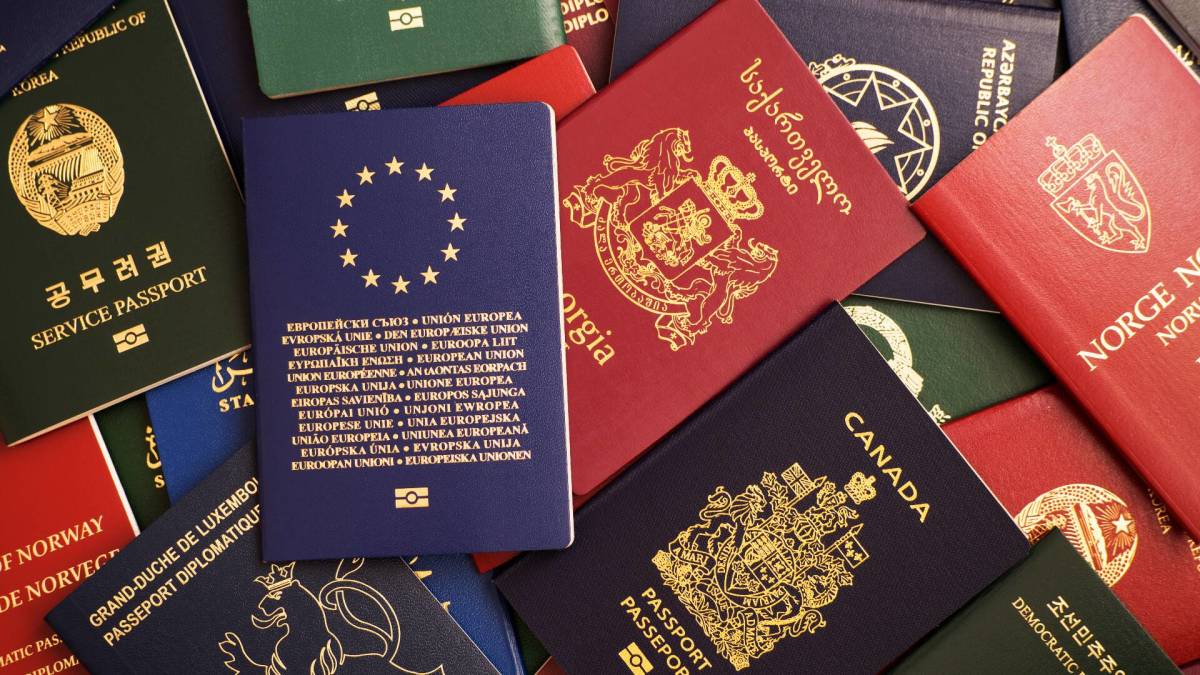
Singapore has overtaken Japan to earn the title of the world's most powerful passport based on the number of foreign countries its holders can enter either visa-free or with a simple visa-upon-arrival.
As the Asian city-state is known both for its wealth and the difficulty of attaining citizenship if one is not born there, it has been raking in top points ever since London-based global citizenship advisory firm Henley & Partners started publishing the Henley Passport Index back in 2006. The exact ranking, however, can change dramatically as global diplomatic relations shift and nations change their rules on visa-free access.
Related: A country just went visa-free for visitors with any passport
Japan, France, Germany, Italy, and Spain all tied for second place, according to the new 2024 ranking published this week. Last year, Singapore scored second while a number of European countries all tied for third place. France, Germany, Italy, and Spain have now moved up to second while Austria and Sweden fell to third. Between the two rankings, the People's Republic Of China opened up visa-free tourist access to tourists from all of the above-mentioned European countries except Sweden.
'Reliable information about global access and mobility'
"The index includes 199 passports and 227 travel destinations, giving users the most extensive and reliable information about their global access and mobility," Henley & Partners writes of the 2024 ranking.
More Travel:
- A new travel term is taking over the internet (and reaching airlines and hotels)
- The 10 best airline stocks to buy now
- Airlines see a new kind of traveler at the front of the plane
The United States, which along with the United Kingdom held the top spot in 2014, slipped from seventh to eighth place amid worsening diplomatic relations with a number of countries (while China also loosened some of the rules it has for American visitors, U.S. tourists still require a visa.) This year's ranking places the U.S. passport between the seventh place held by Canada, Czechia, Hungary, and Malta and the ninth place held by Estonia, Lithuania, and the United Arab Emirates.
Other English-speaking countries like Australia, New Zealand, and the United Kingdom scored higher but not at the very top — fourth place for Brits and Kiwis and the fifth place that Australians share with Portugal.
Related: Cruise tips, tricks and hacks from an expert cruiser
'Global mobility gap now wider than it has ever been'
The general trend, however, has been toward more open borders so long as one comes from a country with a stable economy and political situation free from war and other conflict.
"The global average number of destinations travelers are able to access visa-free has nearly doubled from 58 in 2006 to 111 in 2024," Henley & Partners Chair Christian Kaelin said in a statement. "However, the global mobility gap between those at the top and bottom of the index is now wider than it has ever been."
Citizens of Afghanistan, which has been given the lowest passport ranking for more than 10 years now, can access only 26 countries visa-free compared to the 195 accessible to Singaporeans. Countries such as Syria, Iraq, Yemen and Pakistan all scored at the bottom of the ranking with no more than 33 nations one can enter without applying for a visa.
In 2016, citizens of Germany (the highest-ranking passport at the time) could access 177 countries without a visa. By 2018, that number went up to 190 for the top-ranking country of Japan
Related: Veteran fund manager picks favorite stocks for 2024







